Holding her one-year-old daughter in her arms, Ms. Lan Anh, 34 years old, and her husband traveled from Ca Mau to Hanoi with an uncertain return date, waiting for her child's turn for a liver transplant.
On the morning of May 23, Lan Anh’s family packed their belongings and rented a car from Ca Mau to Ho Chi Minh City to prepare to go to Hanoi. Her daughter was advised by the doctor to have a liver transplant soon.
In 2021, the baby was born after 6 long years of waiting due to infertility. Three days after birth, the baby's eyes and skin were yellow, the doctor prescribed phototherapy and discharged him from the hospital. After a follow-up examination, the doctor diagnosed the baby with physiological jaundice, which would stabilize after just a few months of sun exposure. However, the baby showed increasingly abnormal signs such as dark skin, dark urine, and pale stools, and the doctor in Ho Chi Minh City suspected that the baby had biliary atresia.
Knowing that the National Children's Hospital in Hanoi offers free stem cell transplants, Ms. Lan Anh contacted them to apply. "Hanoi is far from Ca Mau, I have never been there and do not know anyone, but as a mother, I have to find every way to keep my child alive," Ms. Lan Anh said.
In June 2022, the child was admitted to the National Children's Hospital. The results of the exploratory surgery showed that the child had congenital biliary atresia, a rare malformation of the bile ducts and liver, characterized by progressive fibrosis of the bile ducts, causing biliary obstruction, cirrhosis and liver failure. Kasai surgery (creating a bile duct to replace the blocked bile duct outside the liver) and stem cell transplantation were required.
Pathology results showed that the child's liver was in stage two cirrhosis, with poor bile drainage and atrophy of the bile ducts in the liver, so an early organ transplant was required. After more than half a year in and out of hospitals, the child had recurrent fevers due to post-operative infection complications, and the mother had to take time off work to take care of her child.
During Tet 2023, Ms. Lan Anh brought her child home to visit, but after a few days, the child had a fever again. "I didn't have enough money to take my child to Hanoi, so I had to go to Children's Hospital 2 in the hope that my child could continue to be treated there," Ms. Lan Anh recalled.
As soon as she was admitted to the hospital, the doctor ordered her child to have a liver transplant soon and informed her that Nhi Dong 2 was stopping the transplant, and recommended her to go to the University of Medicine and Pharmacy Hospital in Ho Chi Minh City or the National Children's Hospital. Ms. Lan Anh ran around and borrowed money to have enough money to take her child to Hanoi. The doctor explained that she needed to find a suitable liver and pay in advance the cost of about 500 million VND, she said.
Lan Anh's husband is currently the main breadwinner in the family, working as an insurance salesman with a salary of 5 million VND a month, and also driving a motorbike taxi in the evenings. In addition to hospital fees, the cost of food, accommodation, and rent is estimated to be up to 700-800 million VND. "No matter what, my family will try our best to save our child," Lan Anh said, hoping that Children's Hospital 2 can soon perform organ transplants again so that many other children like her child can be saved, and the family will be less miserable having to travel from the South to the North.
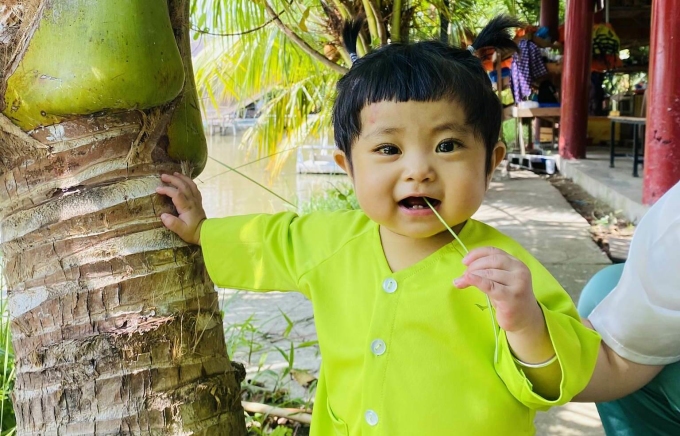
Lan Anh's daughter just turned one year old. Photo: Character provided
Lan Anh’s family is one of many cases affected by the postponement of organ transplants at Children’s Hospital 2. Currently, this hospital has about 70-80 children with end-stage liver failure who need transplants within a few months to a year. If surgery is not performed promptly, it is predicted that two children will die each month.
Dr. Tran Thanh Tri, Head of the Department of Hepatobiliary Pancreas and Liver Transplantation, said that since October 2022, liver transplants at the hospital have slowed down because the organ transplant project has not been approved, the source of organs for children is scarce, and the Covid-19 pandemic has interrupted international support. At this time, there are temporarily no centers in the South that can transplant organs for children. Therefore, many families bring their children to Hanoi for liver transplants, while other parents who do not have the conditions have to bring their children home.
Previously, Children's Hospital 2 signed a liver transplant cooperation agreement with the University of Medicine and Pharmacy Hospital in Ho Chi Minh City and ended at the end of last year. Although the contract was terminated, in case of emergency, the hospital would ask the University of Medicine and Pharmacy Hospital for support. However, due to objective reasons, this place was also interrupted.
Another reason for the delay in liver transplants is that Children's Hospital 2 has not yet approved the transplant plan, according to Dr. Pham Ngoc Thach, deputy director of the hospital. The two operating rooms for organ transplants over the past 18 years have also been the brain and heart surgery rooms. Each time an organ transplant is performed, the brain and heart surgeries must be postponed for a week, except in emergency cases. While waiting for brain and heart surgeries, children can also experience complications and die. "This is terrible," said Dr. Thach.
The hospital has implemented an organ transplant project, building two more standard operating rooms specifically for this surgery. Only when the project is approved will the operating room be used, and brain tumor and heart surgeries will not be affected. It is expected that the Ho Chi Minh City Department of Health will evaluate it at the end of this month, after which the project will be sent to the Department of Medical Examination and Treatment Management, Ministry of Health.
If the project is approved, Children's Hospital 2 will take the initiative to take livers from adults and transplant them into children. The hospital can transplant three children a month instead of only one case as before.
"We are consulting on three pairs of liver transplants. It is expected that in the next 1-2 weeks, the liver transplants will be performed for the children right in the new operating room with the most modern standards," said Dr. Thach. During this time, the transplant patients will still be closely monitored, treated with combined internal medicine, and transferred to other hospitals when necessary.
Children's Hospital 2 is rebuilding the pediatric organ transplant project to submit to the Ministry of Health for review. A representative of the Ho Chi Minh City Department of Health said that the hospital's Board of Directors is required to comply with regulations but not interrupt liver transplants for children with transplant indications.
Specifically, with the spirit of close coordination and mutual support between hospitals under the Ministry of Health in the city and the city hospitals, Children's Hospital 2 continues to perform organ transplant procedures with the support of organ transplant specialists from the University of Medicine and Pharmacy Hospital and Cho Ray Hospital. Doctors from these two hospitals will support Children's Hospital 2 in terms of organ donations from adults. Doctors at Children's Hospital 2 still perform liver and kidney transplant procedures for children as they have done for more than 10 years.
According to the plan, in June, Children's Hospital 2 will continue to perform a new liver transplant with the support and coordination of the University of Medicine and Pharmacy Hospital in Ho Chi Minh City. Representatives of the Ho Chi Minh City Department of Health also stated that one of the difficulties in organ transplants is the scarcity of donated organs for children. With the current situation, doctors hope that there will soon be adjustments in the law to facilitate the organ transplant process, and that organs can be directly taken from brain-dead children.
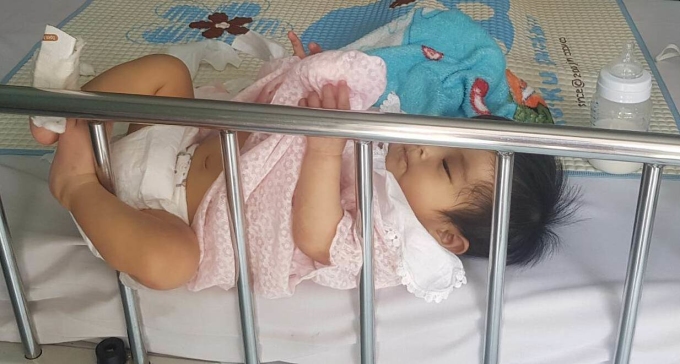
Ms. Lan Anh's daughter at Children's Hospital 2 after Tet. Photo: Provided by the character
In 2005, the first liver transplant at Children's Hospital 2 was successfully performed in collaboration with a professor from Saint Luc University, Belgium. Liver transplants are performed regularly 1-2 times a year, with a total of 13 cases performed in 15 years. Children's Hospital 2 is the only pediatric unit in the Southern region to perform liver, kidney and stem cell transplants for children since 2004. The hospital's organ transplant center just started construction in 2022 and is expected to be completed in 2025.
American Italy
Source link



![[Photo] Prime Minister Pham Minh Chinh receives Mr. Jefferey Perlman, CEO of Warburg Pincus Group (USA)](https://vstatic.vietnam.vn/vietnam/resource/IMAGE/2025/4/18/c37781eeb50342f09d8fe6841db2426c)
![[UPDATE] April 30th parade rehearsal on Le Duan street in front of Independence Palace](https://vstatic.vietnam.vn/vietnam/resource/IMAGE/2025/4/18/8f2604c6bc5648d4b918bd6867d08396)



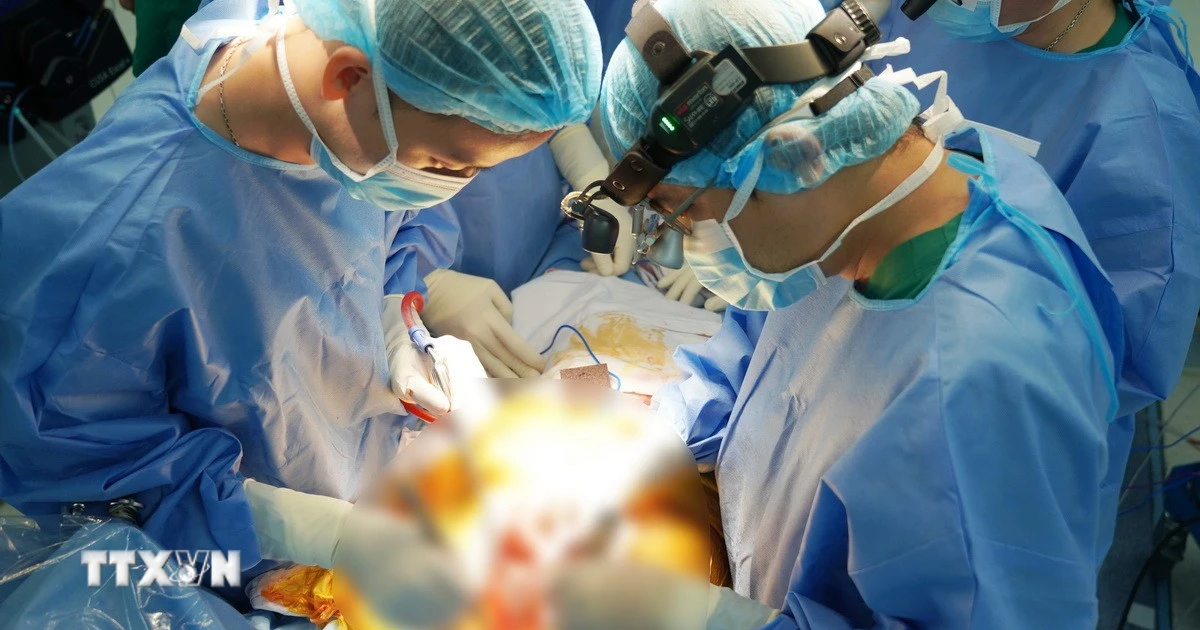





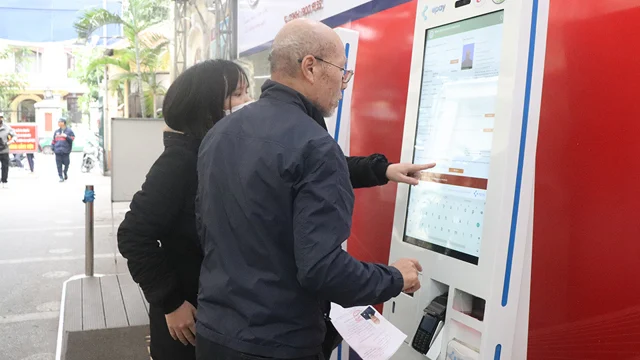

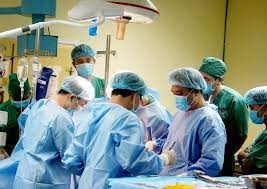

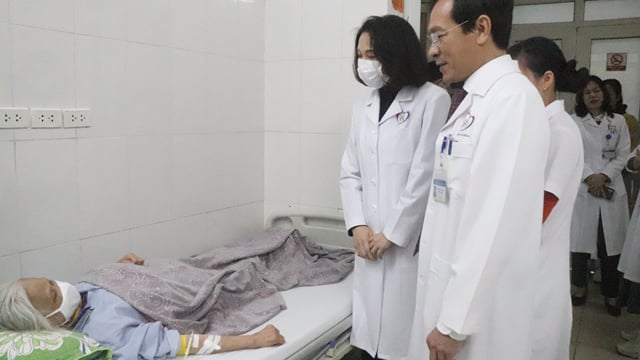

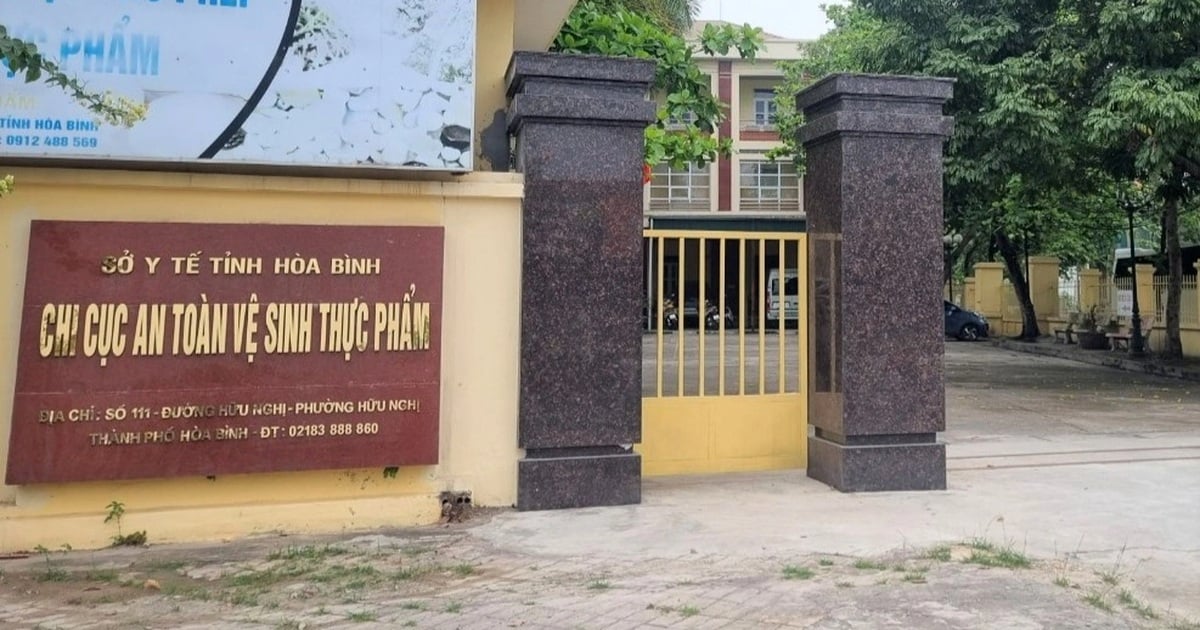
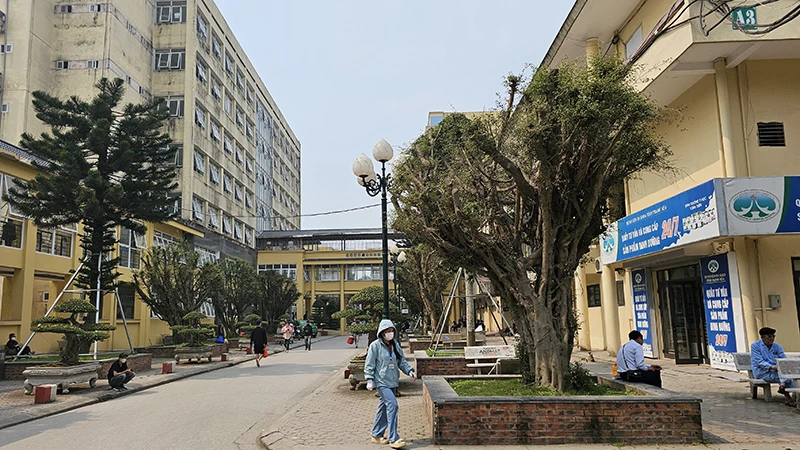




























































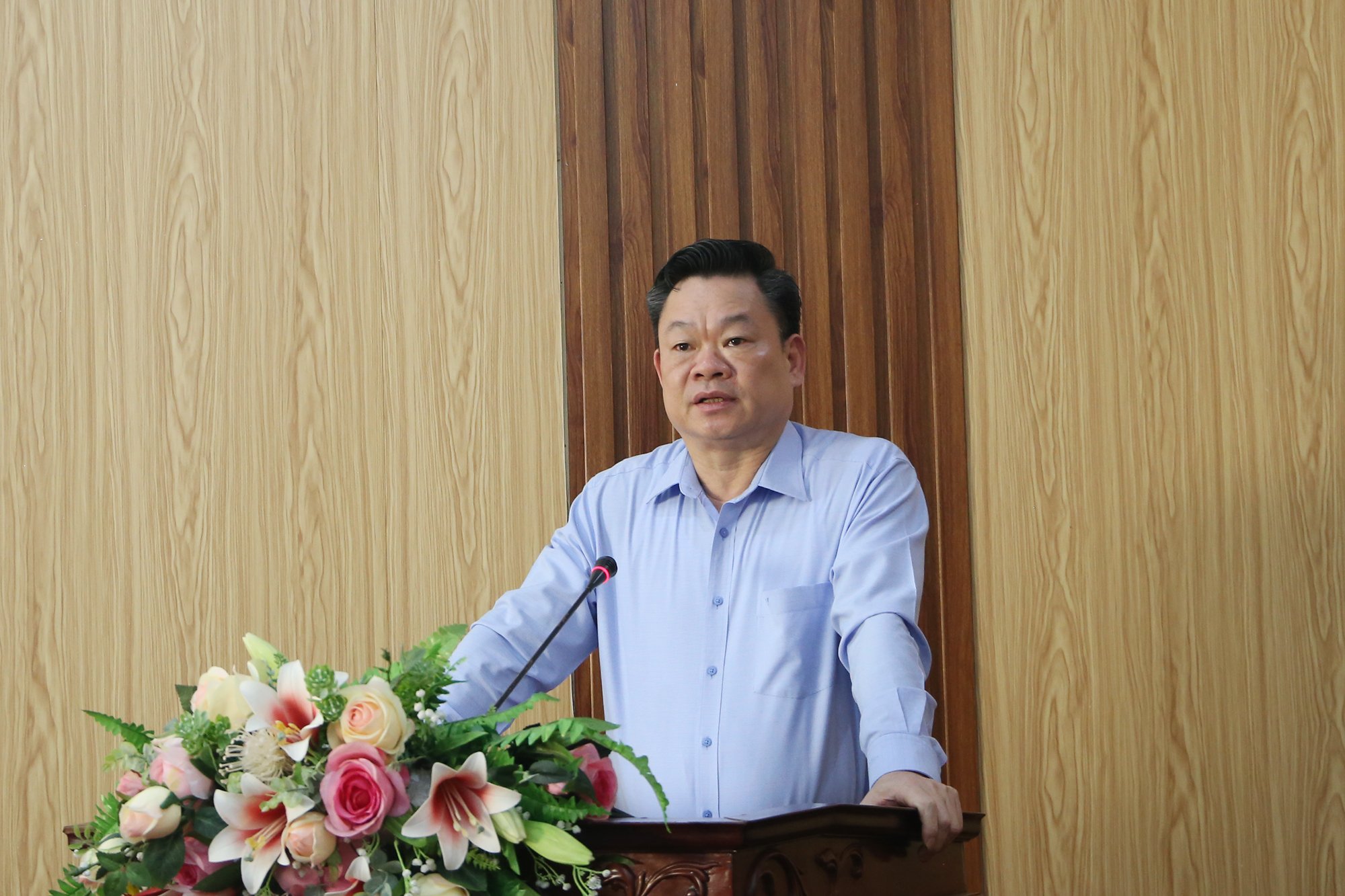












Comment (0)